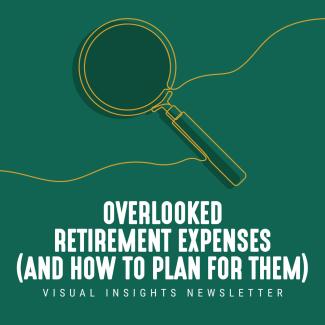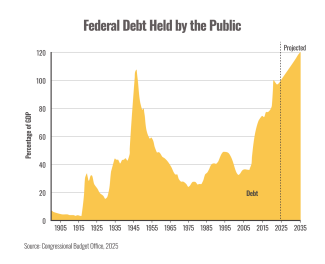
Overlooked Retirement Expenses (And How to Plan for Them)
by Stacy Brasher on Sep 11, 2025
A comfortable retirement doesn’t come with a fixed price tag.
Expenses can change over time, and some of the most important ones are easy to overlook.
That’s one reason about 45% of retirees could run out of money in retirement.1
The good news? That outcome isn’t inevitable. The key is recognizing which costs get overlooked and building flexibility into your plan.
Let’s explore five common blind spots and what you can do to prepare.
1. Overspending Day to Day
Small spending shifts can snowball quickly in retirement.







